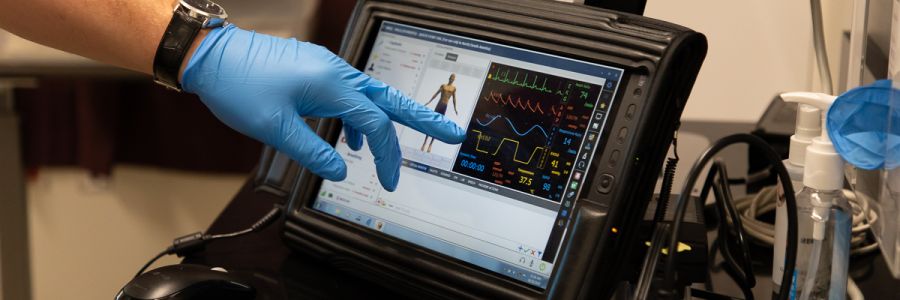Laboratory Director
Dr. John C. Quindry, PhD, FACSM, FCVS-APS
Professor of Integrative Physiology within the School of Integrative Physiology and Athletic Training

Education and Training Background:
- Illinois State University, BS, Exercise Science
- Illinois State University, MS, Exercise Physiology
- Quillen College of Medicine/East Tennessee University, PhD, Biomedical Sciences
- University of Florida, NIH Post-Doctoral Fellow (Scott K. Powers, mentor)
Contact Information:
Email: john.quindry@mso.umt.edu
Phone: (406) 243-4268
Office: McGill Hall, Room 136
Laboratory Location:
McGill Hall 112a, 015
School of Integrative Physiology and Athletic Training
College of Health Professions and Biomedical Sciences
91视频
Research Description:
From a fundamental perspective, the Cardiopulmonary and Cancer Rehabilitation Laboratory examines clinical and non-clinical questions about exercise, cardiovascular and pulmonary diseases (& prevention), and cancer. Links between exercise, physiologic function and biochemical stress (e.g., systemic oxidative stress within the blood of muscle tissue) are examined to understand exercise and lifestyle medicine approaches to disease prevention and rehabilitation. Using this approach, we train future medical professionals (MD, DO, DPT, etc) and academic scientists (PhD) using clinically relevant and scientifically innovative approaches to understand how cardiovascular health is impacted by exercise and oxidative stress.
Current and recent funding includes awards from the NIH, USDA Forest Service. These funds have been used to examine the impact of wildfire smoke inhalation on cardiovascular function, functional tests for upper body strength with normal and abnormal aging, cancer rehabilitation and telehealth solutions for people in rural settings, and stress biomarkers.
Research Techniques:
- Human-based testing: Human exercise testing, vascular function, autonomic function, metabolic function, ECG, pulmonary function, blood, muscle, and saliva biological testing.
- Tissue processing: Histological/biochemical/molecular biology assays of muscle, blood, saliva from human and animal models. Trainees in the lab become proficient in working with humans and animals, exercise testing, working with clinical populations, basics in microscopy, applied biochemistry/molecular biology, and physiologic testing.
Opportunities for Involvement:
Please contact John C. Quindry at john.quindry@mso.umt.edu
Publications:
Lab Members:
Amanda Alfaro, MS
Dr. Ronald Michalak, MD, MS
Nan Condit, MS
Basil Coutinho, BS
